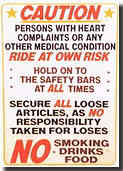Tuesday, April 17, 2012
The Proletkult Poetry Series
Dave Roskos, poet, publisher, editor, event & reading series organizer, saves everything, which now makes him a historian & archivist of Jersey's "alternative" poetry scenes, particularly New Brunswick. There was traffic between the alternative venues & 'zines & the "establishment" poetry scenes around the NJ State Arts Council when it funded individual poetry fellowships (very few 'zine poets received grants), The Dodge Poetry Festival, The Poets-in-the Schools program, & some college-based scenes. There were also middle-ground reading series like Barron Arts Center in Woodbridge (in the '80s & '90s a complete social scene that extended post-reading to the Director's home or a local bar. It's where I met Dave Roskos) , Barnes & Noble stores, etc. More poets from the alternative poetry scene participated in establishment activities than establishment poets (most of them college & school teachers) ventured into the punky bars of New Brunswick. Only a few were truly successful straddling both; it took a good deal of effort.
Top-billing usually meant you went on last. Most poets coveted this. When top-billed, I often requested to open the reading. Organizers generally didn't mind. I am not a demonstrative performer & I preferred not following a theatrical poet. In any case, I was always anxious & I found it difficult to listen to & enjoy the poets preceding me. I didn't want to second-guess my poem selection & fight urges to change it based on what other poets were reading & the reception they were getting.
The Court Tavern reading was the only time I read with David Cope, a Michigan poet, one of my oldest friends & literary allies. It was a thrill for me, & Dave remembers having a great time in the packed, smoky downstairs room at The Court. Dave loves New Jersey. We took Dave to Asbury Park at its blasted nadir & he loved it, saw right into it. Dave & I, though very different, touch at some crucial points in the how & why of poetry that make our poems go well together. Michael Pingarron was a gifted Latino poet who survived a terrible accident that nearly killed him, had to regain his power of speech, went on to finish college, became a schoolteacher in Newark, & died when he tripped walking his dog outside his apt building, concussing his head on a curb. A great loss.
"If a nation expects to be ignorant and free, in a state of civilization, it expects what never was and never will be." Thomas Jefferson
Top-billing usually meant you went on last. Most poets coveted this. When top-billed, I often requested to open the reading. Organizers generally didn't mind. I am not a demonstrative performer & I preferred not following a theatrical poet. In any case, I was always anxious & I found it difficult to listen to & enjoy the poets preceding me. I didn't want to second-guess my poem selection & fight urges to change it based on what other poets were reading & the reception they were getting.
The Court Tavern reading was the only time I read with David Cope, a Michigan poet, one of my oldest friends & literary allies. It was a thrill for me, & Dave remembers having a great time in the packed, smoky downstairs room at The Court. Dave loves New Jersey. We took Dave to Asbury Park at its blasted nadir & he loved it, saw right into it. Dave & I, though very different, touch at some crucial points in the how & why of poetry that make our poems go well together. Michael Pingarron was a gifted Latino poet who survived a terrible accident that nearly killed him, had to regain his power of speech, went on to finish college, became a schoolteacher in Newark, & died when he tripped walking his dog outside his apt building, concussing his head on a curb. A great loss.
Labels: about writing, culture, New Jersey, poem
















